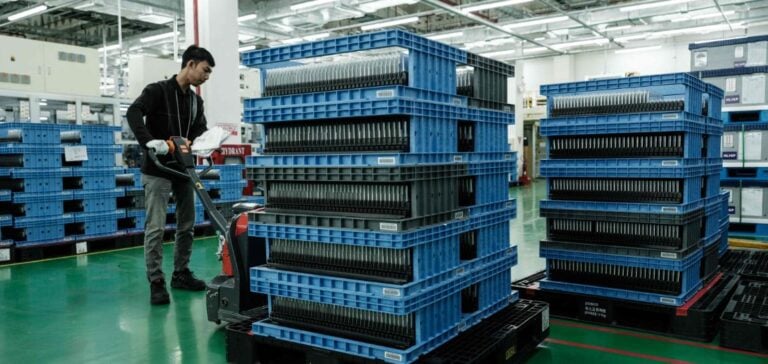Indonesia, already recognized as the world’s largest nickel producer, has taken a strategic initiative to capitalize on this natural resource for the energy transition. In the city of Karawang, near Jakarta, the archipelago’s first battery plant opened this summer. This project, the result of a partnership between South Korean automaker Hyundai and LG Energy Solution (LGES), represents a $1.1 billion investment aimed at establishing Indonesia as a global player in the electric vehicle supply chain.
This plant in Karawang, named PT HLI Green Power, has an annual production capacity of 10 gigawatt-hours (GWh) of battery cells, which could eventually be increased to 20 GWh. The cells produced will notably power vehicles like Hyundai’s Kona light SUV model, helping meet the growing demand for electric vehicles in the Southeast Asia region.
A Strategic Positioning in Southeast Asia
During the plant’s inauguration in July, former Indonesian President Joko Widodo emphasized that such investments would allow the country to add value to its natural resources, which have long been exported as raw materials. Recent Indonesian regulations encourage local production: manufacturers are exempt from customs duties until 2025 if they produce as many electric vehicles domestically as they import by 2027.
This positioning is particularly advantageous, as Indonesia is already the largest automotive market in Southeast Asia. According to Hyundai Motor’s president Chung Eui-sun, vehicles produced and sold in Indonesia set the standard for a region of 700 million potential consumers. Indonesia could thus become a hub for electric vehicle production across the region, attracting other manufacturers such as China’s Wuling and BYD, who have also announced similar projects.
Challenges for Indonesia’s Battery Industry
However, several challenges remain. Despite its significant nickel reserves, Indonesia still struggles to develop a complete supply chain, particularly for refining and processing the ore. Materials required for battery production in Karawang still need to be partially imported from South Korea and China, highlighting the need for Indonesia to strengthen its industrial capabilities.
The battery sector, although rapidly expanding, also faces relatively modest investments. Between 2020 and 2024, these amounted to nearly €30.5 billion for nickel and just over €113 million for electric vehicles, an amount deemed insufficient by many experts to meet the country’s stated ambitions.
Environmental and Economic Prospects
Environmental issues are another significant concern. The intensive extraction of nickel raises alarm among environmental advocates due to its impact on deforestation. Furthermore, some analysts argue that the increased adoption of lithium iron phosphate (LFP) batteries could affect nickel demand, thereby reducing Indonesia’s economic advantages in the global battery market.
Despite these challenges, PT HLI Green Power’s director, Hong Woo-pyoung, remains optimistic about the industry’s growth potential in Indonesia, noting that the country’s economy is growing at a rate of 5% per year, which also stimulates the automotive market. From January to August 2024, over 23,000 electric vehicles were delivered to dealers in Indonesia, exceeding the annual sales of 2023, which totaled 17,000 units.
By investing in battery production, Indonesia could become a pillar of the energy transition in Southeast Asia, strengthening its role in the electric vehicle industry while addressing the challenges of sustainable industrial development.






















